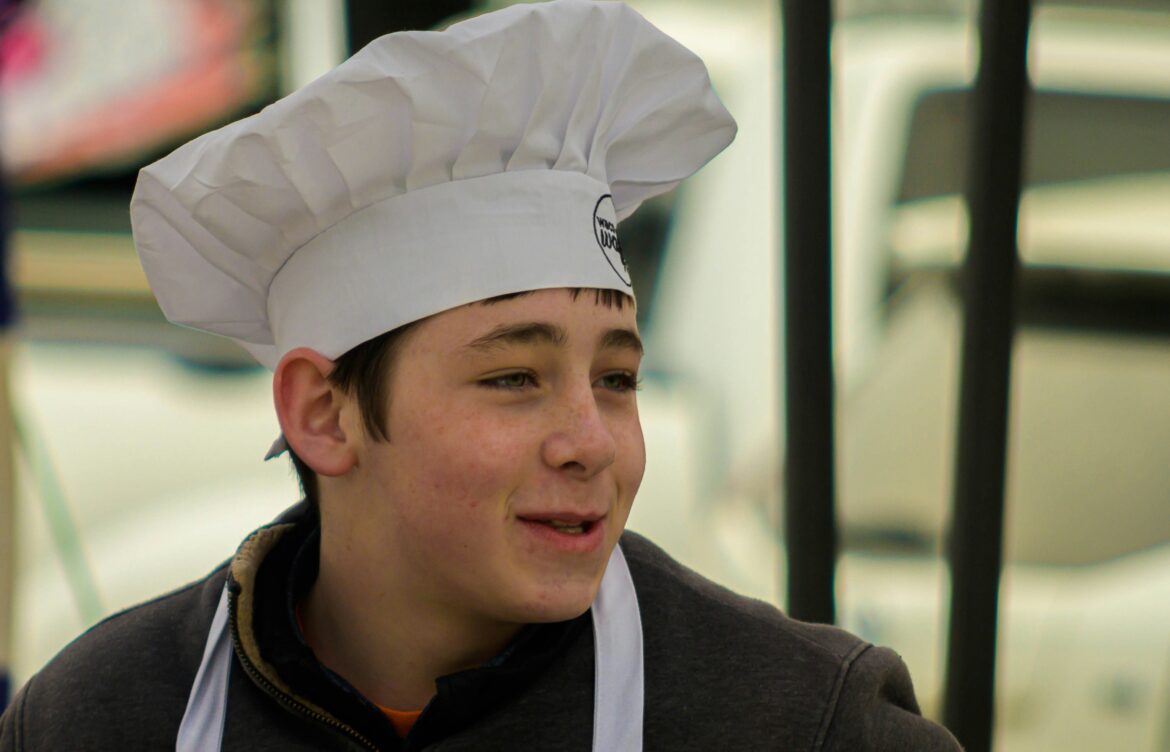
6 Top Skills Kids Learn at Overnight Culinary Summer Camps
Culinary summer camps are gaining popularity among families seeking more than typical overnight programs. They welcome kids who love food, enjoy hands-on work, and thrive in group settings. These camps are held in professional kitchens, school campuses, or private venues and run during school breaks.
They focus on real-life tasks: chopping, measuring, sautéing, cleaning, and plating. Campers receive guidance but also enjoy plenty of independence. Beyond cooking skills, campers develop time management, responsibility, and teamwork. Unlike hobby-based camps with one-off lessons, these immersive programs make every meal, role, and decision count, leaving a lasting impact both in the kitchen and at home.
1. Meal Planning and Preparation Basics
Every great dish begins with planning. At culinary summer camps, kids are introduced to meal structure, from selecting ingredients to organizing prep stations. They learn to balance flavor, texture, and nutrition while working from scratch. These early lessons encourage practical decision-making.
Campers also gain an understanding of portions. Unlike home meals where portions may be pre-decided, these environments show them how to calculate quantities based on group size. This builds awareness around food waste and budgeting. These lessons encourage kids to think about the full meal cycle, not just the final product.
Cooking begins before the heat is even turned on. Kids learn to plan ahead, portion ingredients, and coordinate tasks across a shared workspace. These behaviors help them develop discipline, time sense, and reliability.
Key planning habits kids develop include:
- Choosing ingredients based on group needs,
- Estimating portion sizes to reduce waste,
- Prepping stations and tools before cooking,
- Timing each step to align with the full meal,
- Balancing flavors and nutrition,
2. Proper Knife Use and Kitchen Safety
One of the most critical skills taught in any kitchen is safety. Camps do not skip over this. In fact, knife skills are often a day-one topic. Campers learn how to handle blades with care and control, starting with proper grip and slicing techniques.
Instead of rushing into advanced methods, instructors emphasize posture, motion, and spatial awareness. Fire and stovetop awareness come next, focusing on managing heat, using pans carefully, and staying calm and attentive
Each session reinforces the importance of clean hands, sanitized surfaces, and cross-contamination rules. These camps take pride in teaching the full safety picture, not just select pieces. The result is a lasting respect for how to work responsibly in a shared environment.
3. Clean-Up Habits and Responsibility
Few children enjoy cleaning up after cooking. But in overnight culinary summer camps, it becomes second nature. With their built-in routines and structured rotations, these programs emphasize that cleanup is part of the full kitchen experience, not an afterthought.
Every camper takes part in daily kitchen maintenance. They learn that a spotless station is not optional; it is essential. From dishwashing to trash sorting, campers move through real responsibilities that rotate throughout the week. This gives every child a stake in maintaining the group’s space.
The rhythm of camp life reinforces these tasks. It removes the idea that cleanup is separate from cooking. The two are seen as one continuous process. Over time, kids stop viewing cleanup as punishment. They begin to see it as a way to respect the process and reset the kitchen for the next meal. These habits follow them well beyond the campgrounds.
4. Creativity With Ingredients and Recipes
Camps introduce kids to more than burgers and fries. Ingredients from different cultures, dietary preferences, and modern twists on classics often find their way into the curriculum. Kids get to test, taste, and reimagine.
Creative cooking sessions allow young chefs to personalize a base recipe. Whether it is swapping sauces or adjusting seasonings, they are encouraged to explore variations. This exercise helps them learn that flavor is both a science and an invitation to experiment.
Most importantly, creativity at camp is collaborative. Kids brainstorm together and taste each other’s dishes. Sharing feedback helps build communication and emotional awareness—without turning cooking into a competition.
5. Working Together in a Real Kitchen
Culinary camps are not solo experiences. Campers rotate roles and work as teams to complete group meals. This includes lead cooks, prep hands, and plating helpers. These shared responsibilities teach cooperation under real-time pressure.
Each meal becomes a mini challenge. Timing matters. Missteps affect everyone. This dynamic helps children develop an appreciation for teamwork and how every role adds value. Whether cooking eggs for breakfast or preparing a themed dinner, each task connects to something larger.
By learning to lead, follow, and support their peers, campers begin to recognize the flow of a working kitchen. This experience fosters communication and trust, two qualities that benefit kids in every part of their lives.
6. Confidence Built Through Daily Wins
Confidence is not taught in a lecture; it is built through doing. Overnight culinary camps give children daily opportunities to create, serve, and succeed. The pride from a finished plate, a peer’s compliment, or completing a task successfully helps build self-confidence.
Many children return home more open to trying new things. Because camp has already stretched their comfort zone, they are less hesitant about helping in the kitchen or speaking up in group settings. These moments of accomplishment compound over time. Whether it is flipping pancakes or setting up a full buffet for their bunkmates, campers get to prove they are capable of far more than they imagined. These are confidence milestones, not just camp memories.
Bringing These Lessons Back Home
Parents often notice the difference immediately. Kids return from culinary summer camp with sharper focus, new routines, and a genuine eagerness to help out. What stands out most is their excitement to share what they have learned. These camps give them something tangible to bring home. They can replicate meals, apply safety habits, and take initiative during family dinners. This ripple effect often leads to more connected moments around food and cooking.
